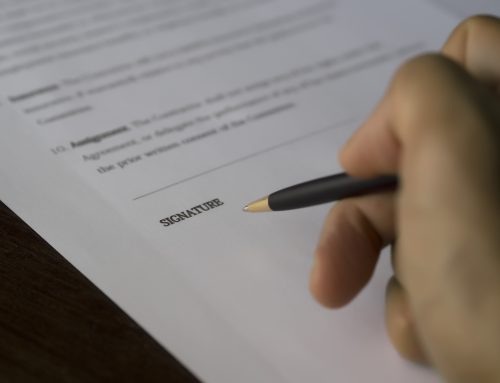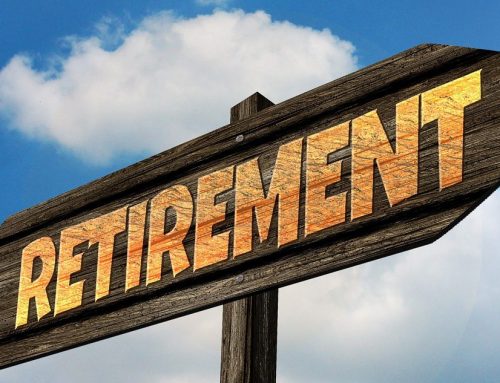Being in debt is one of the most stressful experiences that can keep you from living a fulfilling, happy, and why not–a rich life–that’s for sure. In fact, as many as 80% of Americans are in debt and, many times, being in debt might not even be your fault. After all, nobody provided us with a pay-off-your-loans-and-credit-cards manual, while credit card companies live and breathe to keep us in debt for as long as possible so that they make a profit.
The truth is that if you have signed for a loan, you need to pay it back, regardless of any potentially life-changing events that might have come into your life afterwards (i.e. losing your job). Whether you have come into debt after overspending or because you could not, for some reason, keep your money on track, here are some pointers to help you eliminate your debt and get you on the path to financial freedom.
Find out EXACTLY how much you owe
Go through your account statements and call the companies to negotiate lower interest rates and, of course, find out how much you owe on the bills you pay. As soon as you have all the information you need, you can create a spreadsheet with the type of debt (i.e. credit card, loan, etc.), amount of debt, interest rate, and monthly minimum payments. It is best not to send the minimum payment, though, because it really does not help you own your debt. And, if the total debt amount seems overwhelming, arm yourself with lots of courage and patience. From that moment on, your debt will only be going down; but you need to be determined not to give up.
Prioritize your Debt
Decide which of your debts you are going to start paying off first, based on the interest rate you pay for it (preferably start with the one with the highest interest rate), and focus on repaying that bill first. One of the most difficult things to pay off is student loans. It is estimated that the average student has around $30,000 in student loan debt hanging over their shoulders. In this case, the best course of action is to make sure you pay a bit more each month. If, for example, your standard monthly payment is $120, increasing to as little as $150 will save you lots of money, even thousands of dollars, per year.
Decide not to borrow money again
It is critical to stop using debt to fund your lifestyle if you want to see yourself a financially free person. Temptations will continue to be there, but you need to be strong. No signing up for credit cards, no financing furniture or electronics. Focus only on the debt you want to pay off quickly. Many people lock their credit cards in a safe or ask a friend or relative they trust to hold on to their credit cards. Extreme? Maybe. But, it that’s what it takes to get you away from adding to your existing credit card debt, then so be it.
Build an emergency fund
It is necessary to have emergency funds to pay for an emergency. It makes sense. Try to avoid using your credit cards as a funding source in case of an emergency (almost 50% of Americans have stated they would use a credit card to pay for an unexpected emergency while 36% said they would borrow from relatives). Instead, start with $1,000, or even less, and put a wall between you and debt.
Use a Balance Transfer Card and Pay 0% Interest
There are deals that actually allow you to pay 0% interest on your credit card debt. The average credit card interest rate is between 15-20%. If you transfer your balance to a card that has no transfer fees and gives you zero interest for a year or so (i.e. Chase Slate Card that has 0 percent APR for the first 15 months), you can start chipping away the actual debt rather than just the interest (like you did before with monthly payments). That way, you can reduce debt much faster and cost you significantly less.
Develop a budget and stick to it
This is where many people fail and quickly give up trying to get out of debt. The secret is to create a realistic budget, which will help you identify any surplus you may have (money left over) or if you are a deficit (you are in the reds).
To be financially free the soonest possible, make sure you earn some extra cash. There are plenty of opportunities to gain some more money out of small tasks, such as hiring your car or freelancing. If you are in a commission-based job, try to make more sales or work longer hours for a while. The goal is to increase your surplus and pay down your debt with that extra money. You may also reduce your expenses. This might involve canceling services you no longer (or rarely) use, such as your Netflix subscription or gym membership. Lowering your interest rates can also allow you to get more cash.
Tip: Prefer to cut costs on your everyday bills (i.e. cell phone) to free up cash to put toward paying off debt rather that create a super strict budget.
Map out a plan
Organizing your debts is paramount if you want to free yourself of all financial strains. You may list your debts largest to smallest regardless of the interest rate (or the other way around) to help build momentum and start gaining more confidence. Or, alternatively, you could list your debts, starting with the ones with the highest interest rate. In this case, try to pay the minimum on all other cards and put as much money as you can every month toward the card with the highest interest rate. Then move on to the next debt and so on. That will help you save more money over time. However, it is up to you which method you choose to follow, as long as you don’t lose sight of your goal. Of course, if you have a few small debts that you can quite effortlessly wipe out, then do so, before you start paying off the first credit card.
What to Do if you have Poor or No Credit
Unfortunately, with poor or no credit you will probably not be able to qualify for some of the options mentioned above. What you can do, though, is seek the help of companies (called Debt Relief companies) that specialize in assisting people like you in finding the best possible way to reduce their debt. Some of them may even negotiate reductions on your debt on your behalf while others provide 100% free savings estimate over the phone. What you should pay attention to is that the one you trust is a trustworthy “Member in Good Standing” of the Online Business Bureau (i.e. CuraDebt). Don’t shy away from using them no matter how dire your situation may be. It is their job to help you out.
Tips:
- Don’t close the account once you have paid off the balance to avoid negative credit.
- Use unexpected cash, such as money from tax return or from a sale you have made, to tackle your debt.
- Do consider selling everything you don’t need and drum up some quick cash. A garage sale, if your neighborhood permits it, is a great way to get rid of stuff you no longer need or use for a profit. Otherwise, you could sell them on an online marketplace, of the many out there!
Good luck with eliminating your debt and starting to live the life of your dreams; a debt-free, happy life. Armed with the knowledge you will gain along the way, you can rest assured opportunities will never stop presenting themselves to you!





